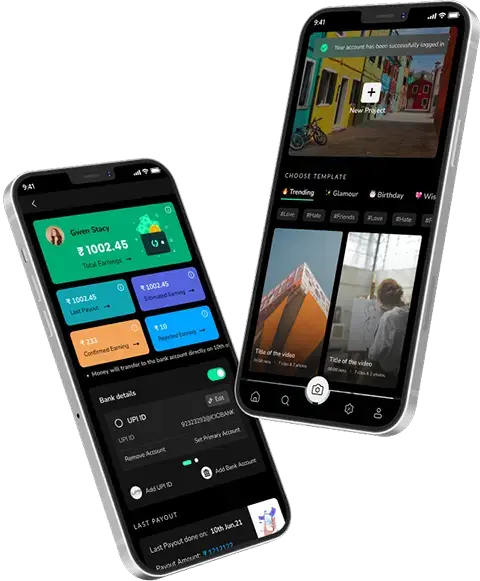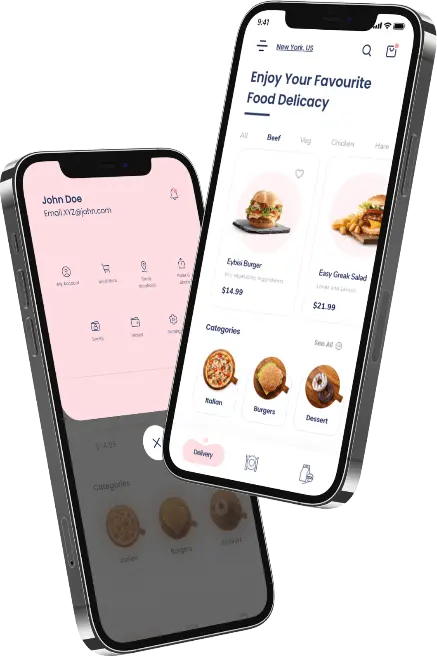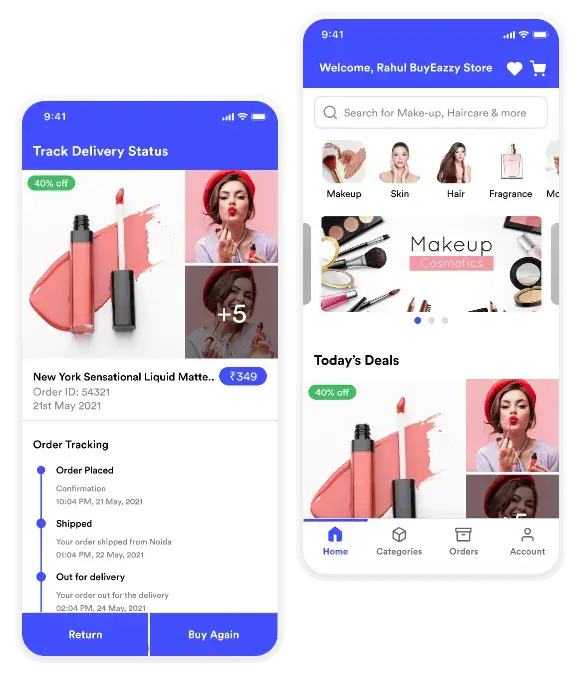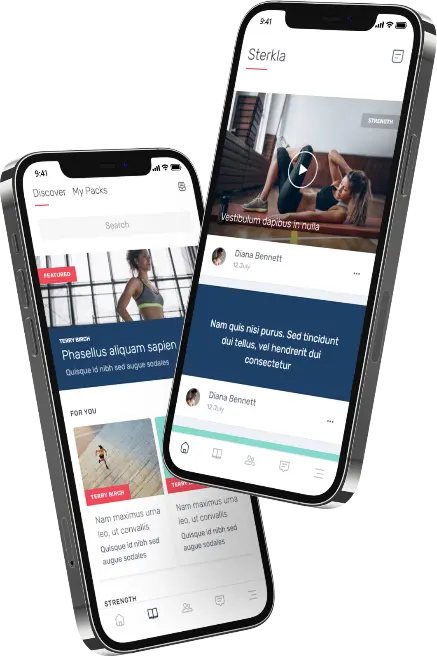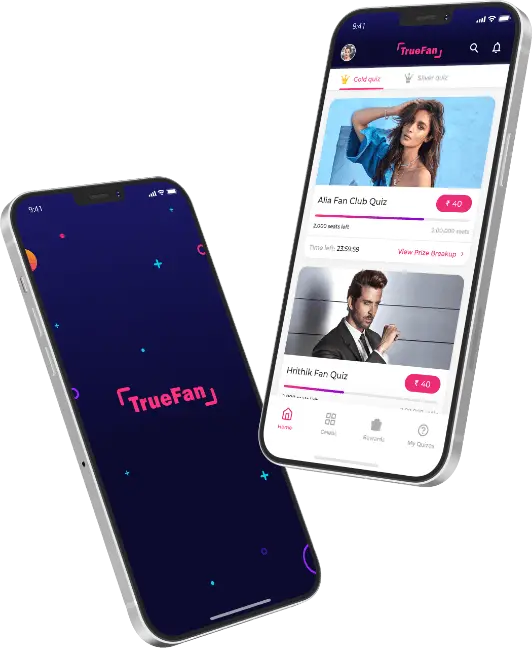It is no surprise that in our modern society, educational technology is now a top priority in both academic and corporate institutions. When we speak of homes, schools, and other settings for education and settings, the use of apps for education has established new standards. Why not, when they’re made to engage learners while providing quality education at any time and wherever a student desires? The reason is that the development of educational apps is on the rise. Do you think investing in an education mobile app with the expertise of an Education App Development Company is profitable?
The education sector is among the most rapidly growing industries in the UK. The last decade has seen the advent of mobile applications, which have changed how people use educational materials. After the lockdown, smartphones became the primary tool for students to get educational materials, and mobile apps became the primary method of instruction. Education has seen an essential transformation since the rise of technology.

Mobile apps have proven to be an extremely effective tool for transforming how education content is distributed and consumed. For an education company, investing in mobile app development is among the best decisions you can make. Most users living in the UK aren’t connected to computers, so creating mobile applications is an excellent method of completing any task, particularly learning.
This post will discuss how mobile apps can benefit the education field. Let’s get started.
What Are Edtech Apps?
Edtech applications are websites or mobile apps specially designed for education. Teachers, students, and parents use the apps to improve the learning experience. Edtech apps offer many features like interactive videos, educational games, personalized education plans, and assessment tools. These apps can be utilized to teach a range of disciplines like the sciences, math, and history, and new ed-tech programs are made for classroom use, while some are made for home use.
Edtech apps are becoming more sought-after because they offer convenience and flexibility in acquiring knowledge. Students can use educational materials on their own time. Edtech applications can provide live feedback and analysis to help instructors identify areas where students might struggle and modify their teaching strategies to address the issue.

Mobile Education Apps: How Do They Affect The Education System?
Trending technology has affected all aspects of life in the last few years. In the past, education was just a matter of cash. As time has passed, the world has changed, and there’s been a revolution in the education system worldwide. We have witnessed the most innovative way of providing knowledge. This educational system is changing with the advent of mobile educational applications. The new system of learning has adapted to the changing style of education.
Similar to all other fields, technological advancements have also slipped into the world of education and changed traditional learning methods. Mobile phones carried in pockets can accomplish more, which is easier and more effective than the conventional approach. In addition to smartphones, tablets have changed information-sharing technology.
Today’s students are educated and have a better comprehension of their subjects. To improve the efficiency of education, apps for educators can be interactive and helpful, drawing students to study. Mobile applications allow us to access a wealth of details and information. The digital revolution has changed the educational system.

Understanding EdTech In 2024
To understand what learning will look like in the coming years, it is essential to understand the present. Presently, EdTech is characterized by the widespread adoption of learning via the Internet. Because of the COVID-19 outbreak, schools have been forced to shutter and switch to online learning, leading to rapid technological adoption in education. Many colleges, schools, and universities have quickly changed their courses to learning online to ensure that students can continue learning.
EdTech firms are more popular with students looking to pursue their online education. They offer a variety of programs on subjects ranging from Computer Science to Business to History. Students can take their time learning at their speed anywhere. Learning Management Systems (LMS) are becoming more popular in education. LMS platforms let schools offer online classes and monitor student development. The platforms also give teachers tools to develop and publish online materials, organize assignments, and provide student feedback.
Various EdTech tools and resources enhance educational settings alongside online learning and LMS platforms. Digital textbooks are increasingly used because they are less expensive and easily accessible than conventional textbooks.

Advantages Of Mobile Apps Within The Edutech Sector UK
The world of education has seen significant changes due to mobile applications developed by an E-Learning App Development Company. Today, it is rare to see students choosing PCs over apps for mobile devices. Smartphones have made it easy for students to access information whenever and anywhere they’d like. It doesn’t matter if it’s for exams, learning, assessments, or quizzes. These are only some of the many apps that offer services. They haven’t just added excitement but also boosted the performance of learners.
It’s not right to focus on just the positives and leave out the negatives of apps for education. The advantages of apps for education are long. For your convenience, below are the top advantages of mobile apps for education.
Also Read : Why are E-learning Platforms Booming?
1. Personalised Learning
Personalization is among the main advantages AI can bring to mobile applications. Through AI, Edutech apps can adapt to different types of learners and deliver them with personalized content. They track learners’ progress, identify areas for improvement, and suggest resources or exercises to help. This level of individualization can provide your customers back with relevant information and help set your Edutech business apart from rivals.
2. Ease Of Learning
This form of learning would allow learners access to the content anytime and anywhere. Students who are enrolled in learning can access the resources for an extended time, even after leaving their school’s campus. Interactive online activities, tests, and other sources, including instructional videos, are all activities that teachers can use to interact with their students at a distance.
Furthermore, the students will be more involved in their learning process if they can work on their projects independently and at their own speed. Moreover, students can talk with anyone around the globe by using these apps to get the most information. They only require an Android-powered smartphone, another compatible gadget, and an internet connection.
Also Read : EdTech startup Knowledgehook has launched a remote learning platform in Ontario
3. Advanced Learning Techniques
One significant advantage of mobile applications for pupils is that they focus on their psychology. This helps them comprehend the subject matter and see it fresh. This software aids children in understanding concepts through challenging questions, brainteasers, and various other educational activities. Students tend to prefer the audio-visual approach to instruction. They are eager and excited to study due to the unique learning environment they’re getting without exerting any effort or exertion.
4. Diversified Content
It is a fact that there’s much content available online. It’s the same for possibilities available to people choosing their preferred platform. With an array of information available, it’s simple for users to get access to the content whenever they need to. It is up to them to decide for themselves and persuade the majority of users across the globe to use it to find a wide range of information or concerns.
It is the perfect opportunity to differentiate yourself in a sea of competitors since there’s a broad array of available information. The app you create and your material can be unique. One of the most effective ways to achieve this is to utilize the latest software development and languages that best suit the educational or learning application you are creating and enhance the look of your app.
5. 24*7 Availability
In contrast to schools, educational apps can be readily accessed. This is why learning with mobile apps doesn’t require a fixed timetable; students can study wherever they like. Furthermore, time-bound instruction is not practical because students can be easily distracted and do not maintain their focus. Educational apps are best because they are available all day and can be used anytime.
The best thing is that most of these applications are so enjoyable that children look forward to using them whenever they are bored. Most of them learn different skills and abilities without even being aware. This is what learning is all about.
6. Data-Driven Insights
Mobile apps are another instrument for collecting data that provides valuable information about the student’s behavior and academic performance. The data you collect can be used to optimize your offerings and plan for future expansions. Data-driven methods allow us to improve our services continually and set the standard for providing the best education across the UK. Data-driven enhancements can be made, including refining existing content or adding additional features to enhance user experience and effectively meet students’ needs.
7. Eco-Friendly Learning
Unsurprisingly, global warming is rapidly engulfing the planet in this 21st century. A variety of factors, like increasing industrialization, the destruction of forests, and so on, are among the reasons for this increase in temperature across the globe. Paper’s extensive use is also a significant factor in deforestation.
In addition, mobile app developers in education will reduce the use of paper by decreasing the requirement for printed learning resources. All learning resources can be practically stored in offline and online formats and are far more mobile. That means you provide high-quality education but assist in reducing global warming with educational app creation.
7. Cost Effectiveness
One of the most important reasons companies make the move online is their cost. They don’t realize how efficient this approach is. It raises many worries in their heads, like how much they’ll need for the process, whether the cost is higher than traditional methods of learning, how they can reduce their expenses, and many other concerns. For those who want to answer this, online learning is already an affordable option in many ways.
Because everyone is now on the internet, this subject is now famous. Few companies provide physical classes. Learning online using software for teaching and learning creates a strategy for the company that showcases financial benefits and successful results. So, selecting the correct educational application, as you know, will deliver efficient results and improve general business efficiency is possible.
8. Real-Time Feedback And Assessment
The traditional classroom environment had a downside: waiting days or weeks for feedback. Edutech applications provide real-time feedback through AI/ML algorithms. Students can submit their work through the application, and the AI robot will analyze the documents and provide precise feedback. Additionally, tests and assignments provide instant results. This helps learners learn faster and also helps students identify areas in which they have to make improvements.

EdTech Mobile App Development Process
The process of creating an educational app may be lengthy and complex. However, by observing these steps in detail, it is possible to build a quality, efficient educational app:
1. The Purpose Of Your App And Its Intended Users Should Be Defined
The initial step to building an educational app is to clearly define its goal and the audience it will target. Consider what needs your app can address and the age range or study area it will concentrate on. Also, you should research your competitors and find any gaps your app can fill.
2. Conduct Market Research
Before embarking on your application development endeavour, they conduct market research to ascertain the target audience’s preferences. This could involve surveys, focus groups, and competitor analysis. The aim is to discover what functions and features people want and require in the ed-tech application and what user experience and interface design are most beneficial.
3. Choose a Development Platform
If you’ve got a concept of the app’s goal and users, it is time to decide on a development platform. There are many options for developing native apps using programming languages such as Java, Swift, or Kotlin, as well as cross-platform application development using frameworks such as React Native or Flutter. As well as web-based app development using HTML, CSS, and JavaScript techniques. The platform will be based on budget, development resources, and your app’s performance.
Also Read : Why is React Native the Best Choice for Mobile App Development?
Develop The User Interface & The User Experience
The appearance of your application is crucial to its flourishing. Designing an intuitive interface that’s user-friendly and visually pleasing is essential. Also, it is vital to develop your experience for users so that it matches your application’s goals and creates a user with a smooth and enjoyable educational experience. Consider what features and capabilities are most beneficial for users, and then design your application to be usable and welcoming to every student.
1. Develop The App
When you’ve designed the interface for users and created a user experience, it’s time to develop the application. It can include developing code and creating databases integrating third-party APIs and tools. Based on your chosen platform, the app may require you to employ an Edtech App Development Company In UK to build your app. Also, you should conduct frequent tests to ensure your app functions well and meets user requirements.
2. Testing The App
Before launching your app, it must be thoroughly examined to ensure its proper functionality and top-notch user experience. Based on comments and data analysis, modifications may need to be made. You could test with select group users to detect bugs or flaws or collect feedback to make necessary alterations and enhancements accordingly.

3. Market And Launch The App
If you’re confident the app you created is ready to go live, it’s time to launch it open to the world. It would help if you devised a marketing strategy to advertise the app’s features and draw users. You can consider paying for advertising, social media promotions, email marketing, and other marketing methods to reach your intended audience. Also, it would help if you continued collecting user feedback and making app changes to increase customer satisfaction and retention.
Creating an ed-tech startup app requires developing a technical solution, a creative mind, and a comprehension of the educational market. Thorough studies, close collaboration with teachers and students, and continuous improvement and refinement of your application based on user feedback are essential.

How Much Does It Cost To Create An Education App?
Many elements could affect the price for creating the EdTech App Development. One of these factors comprise
Also Read : How much does it cost to develop an on-demand app?
1. Type Of App
The price of creating an education app can vary according to the type of app. For instance, simple quiz apps or cheat sheet applications could cost less than an unlimited virtual homeroom application.
2. Platforms
The development of educational apps could vary depending on which platforms are advisable to use. Additionally, creating an app designed for iOS app developers could cost more than creating apps for just one platform.
3. Functionality
The more complicated the functions of EdTech App Development, the higher the cost will be. However, this could be a great way to showcase interactive elements, continuous communication, and individualized learning.
4. Design
The style of a new educational application for businesses could also affect its price. A more visually attractive and user-friendly app may require more design resources, which can increase the price.
Also Read : Flawless Education App Development – Your VIP Pass For Success
5. Development Team
The capacity and size of the development team could also impact the price. In addition, a larger group with more specific capabilities may be more expensive than a more minor team with more generalist capabilities.
6. Area
The area of development for the team will also affect an EdTech App Development’s price. The development teams of countries with more expensive living expenses could charge higher fees to manage their operations than those with less cost of living.

Challenges In Edtech App Development
Making an EdTech app comes with plenty of difficulties. Awareness of these issues before the project is a sure way to ensure the task can be completed smoothly. We’ll take a closer look.
1. Technological Integration
To make your app impact, you’ll need to incorporate advanced technology like machine learning, artificial intelligence, and augmented reality. This will require the experience of an experienced mobile app design company.
2. Data Security And Privacy
EdTech apps must work with sensitive information from users. To protect your users and avoid legal issues, it is essential to implement high-quality data security and comply with privacy rules.
3. Device And Platform Fragmentation
An EdTech application will be accessible via smart TVs, desktops, and mobile phones. A variety of devices present the challenge. Ensuring a seamless and optimal experience on different operating systems and devices demands extensive testing and adaptation.
4. Teacher Training And Integration
As children get used to the latest technology, their teachers might have difficulty using your application. Establishing an app that is user-friendly and accessible across generations is paramount in creating something useful for people of all ages.
5. Regulatory Compliance
Some educational guidelines and regulations vary across jurisdictions, regions, and jurisdictions, which EdTech applications must adhere to. Make sure you have the required compliances in place before launch.

6. EdTech Future Trends
If you’re thinking about the future of education, this article will explore precisely that. The future of EdTech is brimming with thrilling developments and trends that hold the potential to change our learning experience. These are the most exciting future Edtech industries that are expected to emerge over the next few years:
Virtual Reality And Augmented Reality
VR and AR have rapidly become the norm in education. They provide an immersive learning experience that allows students to study topics in an interactive and stimulating way. For instance, medical students use VR for surgical simulation, and history students utilize AR to visit ancient ruins sites. VR will play a crucial function and is a highly demanding technological advancement in education.
1. Hybrid Learning
Hybrid learning (or blended learning) blends traditional classroom and online learning, ensuring maximum effectiveness and individualized instruction by instructors. In schools exploring methods to incorporate technology in their teaching methods, hybrid learning is becoming ever more common. This trend highlights the necessity to integrate technology into education.
2. More Exposure To Digital Life
With the advancement of technology, students are exposed to greater digital interactions, which demands teachers to adjust their teaching strategies accordingly. They also need to include digital literacy in the curriculum so that students have the right skills to live in a world that is increasingly dependent on technology.
Also Read : AR, VR & AI- Technologies Behind Transformation Of Restaurant Industry
3. Gamification
Gamification involves applying game design principles to contexts other than gaming. By incorporating badges, leaderboards, and points, gamification can make learning interesting and enjoyable. This method can motivate students to take their time and help them retain more knowledge.
4. Micro-Learning And Nano-Learning
In discussing what the future of education will soon become, Nano-learning and micro-learning are vital. Nano-learning and micro-learning offer quick learning activities. They are ideal for students with busy schedules who do not spend a lot of time on education. These learning experiences can be performed on mobile devices, giving students access to learning while out and about.
Also Read : E-Learning App Development Cost: How to Determine the Final Sum?
5. Hyper-Personalized Learning
The hyper-personalized approach to learning uses data and analytics to offer customized learning experiences for students. This method lets teachers tailor their instruction to each pupil’s unique preferences, strengths, and weaknesses. Personalized learning aids students in learning more efficiently and effectively.
6. The Metaverse
It can transform education by providing students with an immersive learning experience. Students could, for instance, go on a tour of ancient sites through a virtual reality environment or even attend a live lecture with a world-renowned teacher.
The qualifications Will Evolve To Include Real-World Requirements
In the changing job market, conventional qualifications could be less attractive for employers. Teachers must integrate these into their teaching curriculum to prepare students best for a successful career.
1. A Paradigm Shift
EdTech is a huge opportunity to transform the way we learn. With the help of the latest technology, learning can be more accessible, personal, and enjoyable, altering how we view education and learning.
2. Cohort Learning
In collaborative learning, students work in small groups to address issues and accomplish tasks together. This helps build essential communication and social skills and improves students’ problem-solving abilities.

Let’s Wrap Up
Mobile apps have revolutionized the world of Edutech because of their simplicity and advanced capabilities. They have transformed the field of education by offering an improved user experience, enhanced participation, customized learning, a secure environment for learning, and the promotion of digital literacy. These benefits contribute to better educational outcomes and help students prepare for an exciting and tech-driven future.
As mobile technology grows, its role in education will likely increase by providing more ingenuous methods to enrich the learning experience. With technological advances, mobile apps for education will likely play a more significant role in making education accessible for everyone in the UK.
Absolutely! If you’re eager to delve deeper into the realm of app development, our team members at Techugo are here to guide you. Get in touch today to discover exciting opportunities and gain insights into the fascinating world of mobile app technology!
Post Views: 1,466




 SA
SA
 KW
KW
 IE
IE AU
AU UAE
UAE UK
UK USA
USA
 CA
CA DE
DE
 QA
QA ZA
ZA
 BH
BH NL
NL
 MU
MU FR
FR











